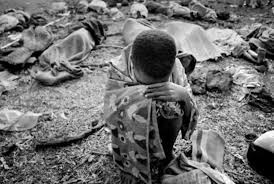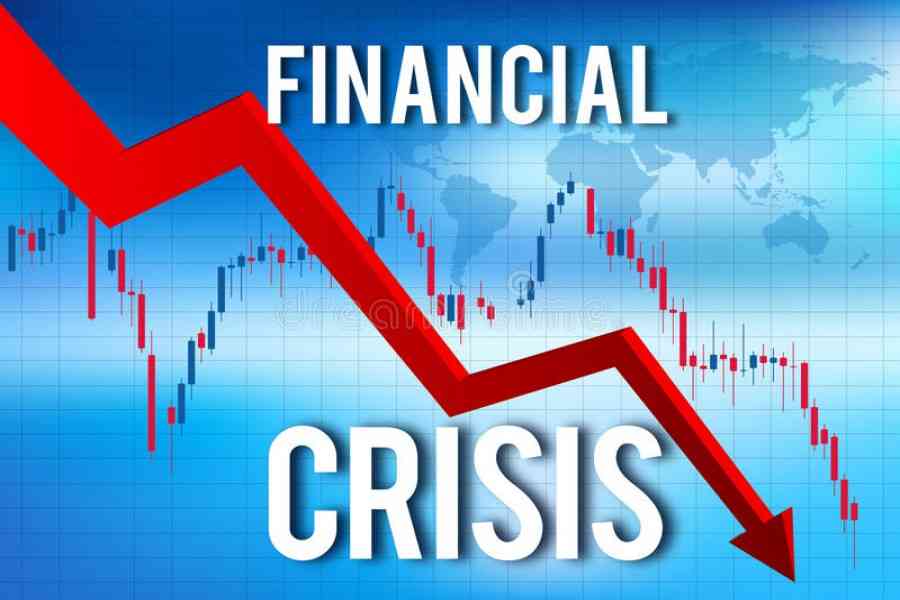
Endgames may not be very dynamic, but when an active war is shutting down, there is still a lot of cleaning up to do.
It may sound grim, but that’s what it looks like.
There are broken things everywhere, wounds and corpses, general messiness.
Things collapsing due to zemblanity forces coined by the unfortunate fate of colonisation, Chimurenga, periodical famines e.t.c that have been set in motion but are too large to control.
The energy of intense suffering is pushed out of consciousness simply so that life can be allowed to go on.
Denial permits us to survive the unsurvivable — for a while.
Left too long, any unconscious defence mechanism becomes detrimental to life.
When collective denial goes unaddressed, we see the proliferation of both social and environmental ills rooted in collective numbness.
- Mavhunga puts DeMbare into Chibuku quarterfinals
- Bulls to charge into Zimbabwe gold stocks
- Ndiraya concerned as goals dry up
- Letters: How solar power is transforming African farms
Keep Reading
As a result of past traumatic experiences like Chimurenga and colonial atrocities youths and even adults are struggling with historical behaviour challenges ending up resorting to alcohol use, all forms of addiction and victimhood of rape yet they are deemed the worst of social misfits meant for the psychiatric hospital.
There's need offer programmes that help with the understanding of the underlying dynamics leading to collective numbness.
Collective numbness surfaces as epidemic substance misuse; food, sex, and entertainment addiction; media overuse; and many other forms of dysfunctional patterns and behaviors. It reveals itself as a collective shutting down to as crisis as much as to healing.
To feel the problems of our nation is to know its suffering, but this requires compassionate “response-ability.”
If we fail to address the nation’s collective trauma with clarity and compassion, we imperil the survival of our children and our children’s children—and countless other species.
In the words of Information, Publicity and Broadcasting Services minister Jenfan Muswere, “The nation is advised that the prevalence of drug and substance abuse has become a global issue and Zimbabwe has not been spared.
“Drug and substance abuse has become a threat to economic development, social harmony, health and wellbeing, public order and security.”
The above profound statement is a clear indication that the deleterious drug and substance use behaviour that has become rampant in our communities cannot be pinned down on lack of physical resources due to unemployment or any other tangible lack even though they can be exacerbated by them.
To ensure the realisation of our national vision 2030 the Cabinet has thus approved the Principles for the enactment of the Zimbabwe Drug and Substance Agency Bill, 2024 that paves way for the establishment of an additional security service and specialised Drug and Substance Elimination Agency/National Drug Agency.
This is a brilliant move by the government with great potential to offer a national respite from the drug and substance menace provided a qualitative response is implemented.
It is critical to note that they're hidden dynamics underpinning the drug and substance menace which needs to be unveiled and understood before execution of any intervention.
Hidden dynamics are just that, hidden in generations before us, in our genes and inform our thinking patterns without realising it.
No matter how one is gifted or intelligent yet without emotional intelligence or a way to look at the whole system when analysing a problem, life seems to be a huge challenge.
Young and talented youths in Zimbabwe and other parts of the world are facing difficulty to find a purpose in life, the economic environment offers little passage to exercise their talent.
Defeated and frustrated a lot of youth and adults struggle to keep afloat.
Programmes to offer space where people exercise their minds, find their voice and access the vital force to fight the survival grind are far in between especially for the lack of funding.
The approach has to offer programmes that are system intelligent and understand how to support our crumbling structures by exposing individuals to inner work programmes that scaffold the individual to stand up with dignity in fighting to survive.
The Zimbabwe Drug and Substance Agency Bill is a super high quality knife and it's impact will be determined by the holder thus chef or murderer.
There are two types of people in the world—those who react to situations and those who respond. Although the two terms may seem similar, they are vastly different because the factor that distinguishes them is mindfulness.
Any plan to act without due wisdom and understanding will often result in more harm than good as it is known that the quality of any intervention lies in the interior of the intervenor, hence the enactment of this great Bill demands due capacitation of the interpreters as well as the operational agencies to ensure maximum benefits.
When we, as a nation simply react to situations, we get in the heat of the moment.
Reaction is all about impulsivity and a sense of urgency; it's sudden and rash. When we react, we allow our actions to be dictated by our emotions and feelings.
Reaction is also tied into our fight or flight response, which is all about toxic self-preservation.
Responding is much different from reacting because it's about being mindful of all the other people involved which is our only national option with regards to social ills like crime and drug & substance use plague.
We can still acknowledge the fight or flight response but simply let it pass.
When we respond, we act in a calm manner assessing the situation.
It's about choosing how we react as a nation and making a conscious choice. Staying calm, assessing the situation, acknowledging the stress response but letting it pass by suspending judgement.
Responding is actually the opposite of reacting.
It's about suspending that judgment momentarily and deep listening.
Responding is a conscious act and it's all about choosing to be fully present in the moment.
When we respond, we are willing to hear the other side before jumping to action which is in line with with the term security service mentioned in the bill.
In another highly commendable move the cabinet has approved the Zimbabwe Multi-Sectoral Drug and Substance Abuse Plan 2024-2030 that outlines a comprehensive strategic approach to address the escalating threat of drug and substance abuse to public health,
economic growth, national security, and social stability in Zimbabwe and this plan will only guarantee the needed results if all the implementations are done with due honesty, openness, integrity and inclusivity.
The sanctioned establishment of outpatient psycho-social support centre and parenting groups countrywide as well as the purchase of psychotropic medicines and food provisions for rehabilitation centre is a pure sign of wisdom which calls all organisations, institutions and everyone else from grassroots level to participate in national building in his or her best capacity.
- *Tinashe Elvis Chikodzi is a social entrepreneur, founder & director of Chartered Institute of Organic Health Trust, chartered customer service professional, research and advocacy director of Africa Project Against Suicides (APAS). Mobile No. +263 716 641 253
- These weekly articles are coordinated by Lovemore Kadenge, an independent consultant, managing consultant of Zawale Consult-ants (Private) Limited, past president of the Zimbabwe Economics Society and past president of the Chartered Governance and Accountancy Institute in Zimbabwe. Email- kadenge.zes@gmail.com or Mobile No. +263 772 382 852










